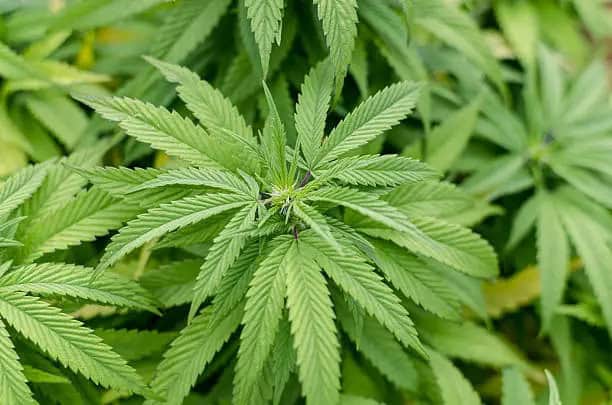Medical marijuana helps many patients manage chronic pain, epilepsy, anxiety, and other conditions. But sometimes, the prescribed dosage isn’t enough to provide relief. If your current amount no longer meets your needs, you might consider increasing your dosage. To do this legally, you need to upgrade your medical marijuana card. This guide explains how to request a higher dosage, what factors influence approval, and steps to complete the process.
Understanding Medical Marijuana Dosage Limits
Why Dosage Limits Exist
Medical marijuana laws vary by state, but most set limits on how much cannabis a patient can buy or possess. These restrictions help regulate use and prevent abuse. However, some patients require higher doses due to tolerance, worsening conditions, or ineffective lower dosages.
Signs You Might Need a Higher Dosage
- Your current prescription no longer controls your symptoms.
- You experience breakthrough pain, anxiety, or discomfort.
- Your doctor determines a higher dose could improve your condition.
- A different form of cannabis, such as concentrates or edibles, may be necessary.
Steps to Upgrade Your Medical Marijuana Card
1. Check Your State’s Medical Marijuana Rules
Each state has specific regulations for medical marijuana dosage increases. Some states allow doctors to adjust dosages easily, while others require a formal request. Visit your state’s health department website or medical cannabis program page to understand your options.
2. Schedule an Appointment With Your Doctor
Your prescribing physician must approve any dosage increase. During your visit:
- Explain why your current dosage isn’t effective.
- Provide records of your symptoms and any side effects.
- Ask about alternative forms of cannabis that might work better for you.
- Request updated documentation supporting the need for a higher dose.
3. Obtain Updated Medical Records
Your doctor may need to submit new paperwork to justify the increase. These documents typically include:
- A statement explaining why the dosage adjustment is necessary.
- Evidence of your current treatment’s effectiveness or lack thereof.
- Any additional diagnoses or changes in your medical condition.
4. Submit a Dosage Increase Request
Depending on your state, you may need to:
- Apply online through your state’s medical cannabis portal.
- Fill out a dosage modification form.
- Pay a processing fee (if required).
- Provide updated medical documentation.
5. Wait for Approval
Approval times vary by state. Some patients receive a response within days, while others may wait weeks. If your request is denied, you may have options to appeal or provide additional medical evidence.
Factors That Influence Dosage Increase Approval
State-Specific Guidelines
Some states impose strict limits on daily or monthly marijuana allotments. Research your state’s laws to see how much flexibility exists for increasing dosages.
Your Medical History
Patients with documented chronic conditions or progressive illnesses may have a stronger case for higher doses. Keeping detailed records of your symptoms and treatment history can support your request.
Doctor’s Recommendation
A physician’s recommendation carries significant weight. If your doctor supports the increase and provides a well-documented medical necessity, your chances of approval improve.
Type of Cannabis Product
Higher doses don’t always mean consuming more flower or edibles. Sometimes, switching to a different form—like tinctures or concentrates—provides stronger effects without increasing the total amount consumed.
Potential Risks and Considerations
Tolerance and Side Effects
Higher dosages can lead to increased tolerance, meaning you may need even more over time. Common side effects include dizziness, dry mouth, drowsiness, and in some cases, heightened anxiety. Talk to your doctor about managing these risks.
Legal Implications
Even with approval, possessing or consuming large amounts of cannabis can lead to legal issues if you travel to states with stricter marijuana laws. Always carry documentation proving your prescribed dosage.
Cost Increases
Higher doses often mean higher costs. Some insurance plans don’t cover medical marijuana, so be prepared for possible out-of-pocket expenses.
Alternative Solutions if Your Request Is Denied
Try a Different Doctor
If your current physician denies your request, seek a second opinion from another qualified provider.
Experiment With Different Products
A different strain, consumption method, or cannabinoid ratio (CBD vs. THC) may improve your symptoms without needing a dosage increase.
Appeal the Decision
Some states allow appeals if your request is denied. This process may require additional medical evidence or a review by another doctor.
Conclusion
Upgrading your medical marijuana card for a higher dosage involves research, medical consultation, and proper documentation. Start by checking your state’s laws, discussing your needs with a doctor, and submitting the necessary forms. While higher doses may provide better symptom relief, weigh the potential risks and costs before making changes. If your request is denied, explore alternative solutions, such as different products or seeking a second medical opinion.
Reference
https://dph.illinois.gov/topics-services/prevention-wellness/medical-cannabis/physician-information.html
https://dph.illinois.gov/topics-services/prevention-wellness/medical-cannabis/extending-your-registry-card.html
https://karger.com/mca/article/6/1/41/838533/Climbing-the-Evidence-Pyramid-Dosing
https://www.mmtcfl.com/blog/basic-guide-to-dosing/
https://pmc.ncbi.nlm.nih.gov/articles/PMC8252988/
https://affordablemarijuanalicense.com/dosing-change-request/
https://www.betterhealth.vic.gov.au/health/conditionsandtreatments/medicinal-cannabis
https://www.nj.gov/cannabis/medicinalcannabis/medicinal/

